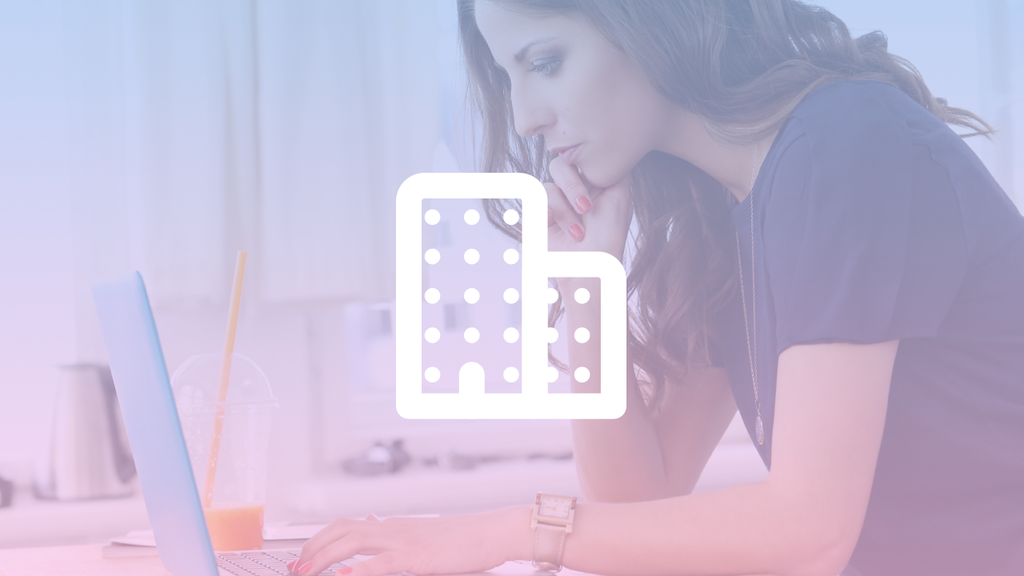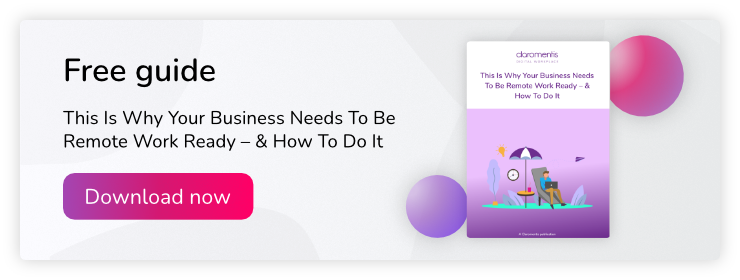You feel refreshed after a good night’s sleep; you’ve never felt more productive; and you’re doing your best work yet. But you also feel guilty. Despite outperforming your usual rate of work, you can’t help feeling slightly ashamed that you’re doing it whilst working from home in your pyjamas.
This phenomenon is known as “work from home guilt”. It’s the perception that you ought to be physically present in the office, worrying that others will assume you’re contributing less than those who are office-bound.
This guilt is pressuring 46% of UK employees to combat the belief that working from home is less productive than being in the office, according to a survey of 500 workers by LogMeIn. This can result in people working longer hours or doing more than they need to prove they are pulling their weight.

Remote workers are working longer hours to prove they’re pulling their weight
Despite UK employees having the statutory right to request flexible working, which can include working from home, changing working hours, or working part-time, there is still a stigma attached to the staff who do – which only perpetuates that work from home guilt.
What is the work from home stigma?
The work from home stigma is driven primarily by employers who fear staff are less productive when not in the office – despite there being plenty of evidence on the contrary.
Almost a third say their productivity is hampered by distractions in the office, and another 29% say they waste time chatting with co-workers or browsing the internet, according to the same LogMeIn survey.
When working from home, however, it’s a different story. A two-year long study conducted by Stanford found that performance improved by 13% when people worked remotely, compared to those who didn’t. And Owl Labs’ State of Remote Work 2019 report found that 79% of employees choose to work from home to increase their productivity and focus.
The evidence that working remotely is better than the office for productivity is overwhelming. And yet, Owl Labs’ report found that 82% of managers are concerned employee productivity is reduced when they work from home.
The belief that working remotely is less credible, and that workers need constant supervision to ensure they complete tasks, can go some way to explain why the stigma persists. Lucy Adams, CEO of Disruptive HR, says: “Flexible working is very often seen as working less – that it’s somehow a privilege bestowed on people to get away with working less hard or less effectively – when actually it’s the opposite.”

The belief that staff need constant supervision is keeping the work from home stigma alive
But there is hope. The same report by Owl Labs found that, after receiving training, remote managers were less concerned about reduced productivity. It seems the appropriate training assuages managers’ fears about productivity, helping them understand and support their remote workers better.
Tips on overcoming the work from home guilt
You may not be able to overthrow the work from home stigma, but that doesn’t mean you should have to suffer from the work from home guilt. Rest easy knowing that the data backs up remote working being a credible working practice, and that more and more people are demanding that it become the norm.
Instead, focus on how you can enhance remote working to suit your working style. Here are some remote working tips to get you started:
Optimise your home working setup
Creating an environment that’s only for work is a good way to avoid blurring the lines between work and home. Not everyone has the luxury of a separate home office, but utilising what space you have will help boost concentration levels. Use your kitchen or dining table as your desk for the day, get lots of natural light in the room, and invest in a sturdy office chair that provides ergonomic support.

Create a home working environment that’s “just for work”
Starting and finishing every home-working day with a “ritual” can help add structure too. Getting dressed as soon as you wake up, putting the kettle on, and organising what you’re going to work on that day will put you in the right mindset. At the end of the day, try getting up and actually leaving your working area. Putting this definitive barrier between work and leisure is something that graphic designer and blogger Tyler Littwin finds helpful. He says: “If you work from home it’s really easy to let your work life bleed into your personal life. Maintaining a boundary is important for both halves of the equation.”
Stay connected with the right technology
Fears that you can’t keep in touch with coworkers or stay in-the-know about company updates if you’re working from home need no longer be an issue once you have the right digital workplace tech in place. Tools such as internal social media and instant messaging keep lines of communication open between your office and remote colleagues, while the employee intranet portal is home to all the latest company news, documents, and policies that you need. Meghan Keaney Anderson, VP of Marketing at HubSpot, agrees that the right tech enables remote working because it removes barriers of distance between team members. She says: “Finding the right tools to keep you and your team connected is important for staying productive at home.”

Digital workplace tech like internal social media keeps you connected to your coworkers
Technology keeps you connected to your projects and files too. Cloud storage means you no longer face the frustration of emailing work to yourself the evening before you work from home – a chore that’s all too easy to forget. Instead, you can simply access the files you need – wherever you’re based – and continue from where you left off.
Understand what makes you productive
Are you a night owl or an early bird? Knowing when you’re most alert and productive will help you plan work effectively. Set yourself the hard tasks at times when you’re most productive, and the ones that require less brain power when you’re winding down. Bear this in mind when arranging meetings too, so that you’re at your most attentive when in conference calls with clients or colleagues. One of the most rewarding aspects of working remotely is the ability to manage your own schedule, so make the most of this and work in a way that suits your natural body clock.





